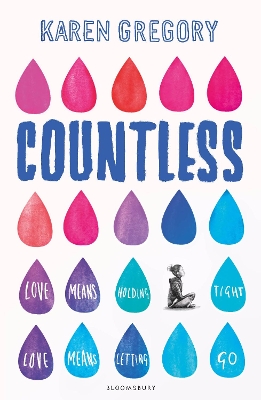
Kelly
At seventeen years of age, Hedda is anorexic and living alone in a small, damp apartment with threadbare flooring, without a pension and without parental support. After a one night stand, now discovers she's pregnant. Hedda has spent her teen years unable to maintain control over her body image, resulting in an eating disorder that has consumed Hedda whilst devastating her family. Living within the treatment centre, the predominantly female adolescent residents have attended counselling and while in eagerness to remain thin, become competitive. Then Hedda is released as an out patient.
Hedda is unwell, still unable to come to terms with the disorder but discovering she's expecting a child may have saved her life. At twenty weeks pregnant, abortion isn't an option for Hedda who is considering placing the baby up for adoption, believing she is unable to take responsibility for the new life that will depend on Hedda to remain well. Forcing herself to consume was incredibly confronting. Hedda's narration also explores mental illness although Hedda is never officially diagnosed. She refers to her eating disorder as Nia, allowing her anorexia to consume her as a perpetual and influential presence. Hedda continues to count calories, only allowing herself to consume to maintain the health of her unborn child.
Throughout her pregnancy, Hedda continues counselling as a component of her release. Her relationship with her parents is constrained and while Hedda's father is compassionate, her mother is an authoritarian woman who sees Hedda as a noxious presence, advocating for her accomplished daughter while Hedda is deprived of support. Her derelict apartment is unbefitting for a young mother and child but Hedda's mother is unwilling to allow her daughter to return home.
Robin provides tremendous encouragement to Hedda throughout her pregnancy, nutrition and companionship and considering the confronting nature of Hedda's illness, I appreciated the amicable friendship. Hedda's assistance consists of counsellors who attempt to guide her throughout her recovery and children's welfare, who seemingly cared more for the adoption of her unborn child rather than Hedda's well being and fragility.
Author Karen Gregory mentions that Countless is a work of fiction but had referenced her own journey within the acknowledgements and should be applauded for a brave and exceptional debut novel. Confronting, captivating and compulsory reading.
